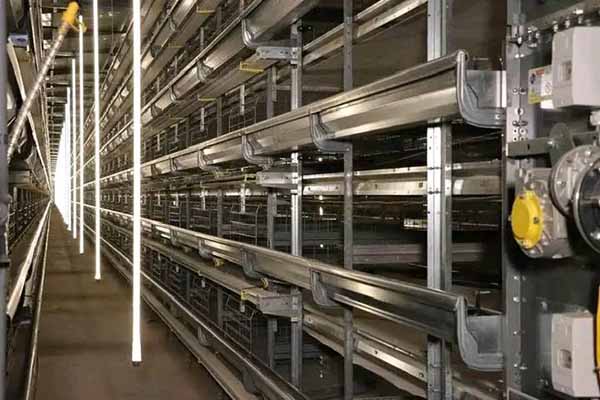How to Start a Chicken Farming Business in South Africa: A Guide from Livi Machinery
Time : 2025-07-24
Are you considering starting a chicken farming business in South Africa? As a leading poultry equipment manufacturer from China, Livi Machinery is here to guide you through the process. In this article, we will discuss the essential steps to start a successful chicken farming business in South Africa, including the importance of choosing the right equipment.
1. Research the Market
Before diving into the chicken farming business, it’s crucial to research the market in South Africa. Understand the demand for chicken products, the competitive landscape, and the regulatory requirements. This will help you make informed decisions about your business strategy.
2. Choose the Right Location
Selecting the right location for your chicken farm is vital. Look for areas with suitable climate conditions, easy access to transportation, and proximity to potential customers. Consider factors like water supply, power availability, and land availability.
3. Develop a Business Plan
A well-thought-out business plan is essential for securing funding and guiding your business operations. Your plan should include details about your farming goals, marketing strategy, financial projections, and the equipment you’ll need.
4. Choose the Right Chicken Breed
Selecting the right chicken breed is crucial for your business’s success. Different breeds have different growth rates, egg-laying capabilities, and disease resistance. Research the popular chicken breeds in South Africa and choose the one that best suits your business goals.
5. Invest in Quality Poultry Equipment
Investing in high-quality poultry equipment is essential for efficient and profitable chicken farming. Livi Machinery offers a wide range of poultry equipment, including:
– Brooder Houses: To provide a controlled environment for newly hatched chicks.
– Chicken Coops: To house your chickens and protect them from predators.
– Feeding Systems: To ensure your chickens receive a balanced diet.
– Watering Systems: To provide fresh, clean water for your chickens.
– Ventilation Systems: To maintain a healthy environment for your chickens.
6. Implement Biosecurity Measures
Biosecurity is crucial to prevent the spread of diseases among your chickens. Implement measures such as regular cleaning and disinfection, restricted access to the farm, and isolation of new birds.
7. Monitor and Manage Your Chickens
Regular monitoring and management of your chickens are essential for maintaining their health and productivity. Keep track of their growth, feed consumption, and egg production. Use Livi Machinery’s poultry equipment to ensure optimal conditions for your chickens.
8. Market Your Products
Once your chickens start producing eggs or meat, it’s time to market your products. Explore different channels, such as local markets, supermarkets, and online platforms. Develop a strong brand and communicate the quality and benefits of your chicken products.
9. Stay Informed and Adapt
The poultry industry is constantly evolving. Stay informed about the latest trends, regulations, and best practices. Be ready to adapt your strategies and operations to ensure the long-term success of your chicken farming business.
10. Seek Professional Advice
Don’t hesitate to seek professional advice from poultry experts, veterinarians, and other experienced chicken farmers. They can provide valuable insights and help you avoid common pitfalls.
Conclusion
Starting a chicken farming business in South Africa can be a rewarding venture. By following these steps and investing in high-quality poultry equipment from Livi Machinery, you’ll be well on your way to success.
For more information about our poultry equipment or to discuss your chicken farming needs, please contact us at Livi Machinery. We’re here to help you build a successful and sustainable chicken farming business in South Africa.












